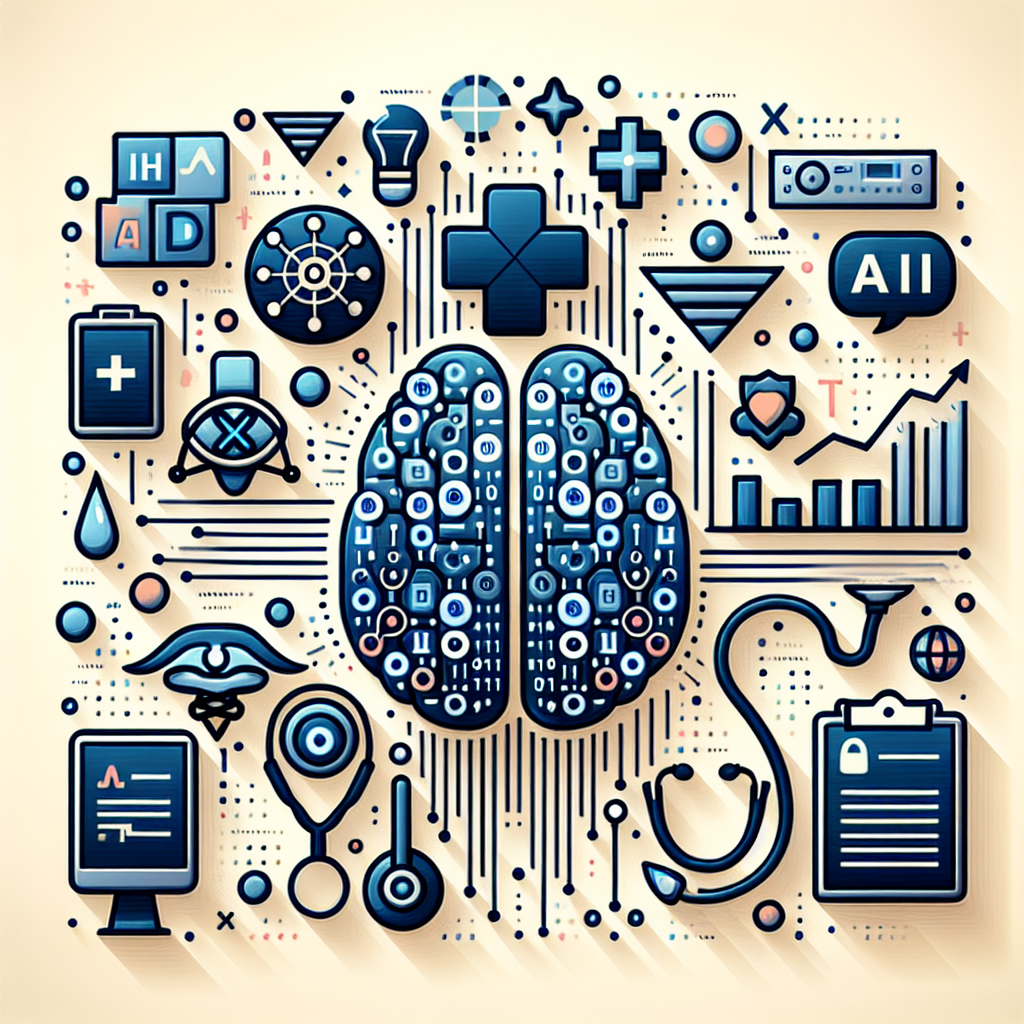In recent years, the healthcare industry has seen a significant rise in the use of artificial intelligence (AI) in various aspects of patient care, diagnosis, treatment, and research. One area where AI is making a significant impact is in healthcare marketing. From identifying potential patients to personalized advertising campaigns, AI is revolutionizing the way healthcare organizations reach and engage with their target audience.
AI in Healthcare Marketing: How It Works
AI in healthcare marketing involves the use of advanced algorithms and machine learning techniques to analyze and interpret data, predict patient behavior, and optimize marketing strategies. Here are some key ways in which AI is being used in healthcare marketing:
1. Patient Segmentation: AI algorithms can analyze patient data and behavior patterns to segment the target audience based on factors such as demographics, medical history, and preferences. This allows healthcare organizations to tailor their marketing messages and campaigns to specific patient groups, increasing the chances of reaching the right audience with the right message.
2. Personalized Marketing: AI can help healthcare organizations create personalized marketing campaigns that are tailored to individual patients’ needs and preferences. By analyzing patient data, AI algorithms can recommend personalized content, offers, and messages that are most likely to resonate with each patient, leading to higher engagement and conversion rates.
3. Predictive Analytics: AI can also be used to predict patient behavior and preferences, helping healthcare organizations anticipate patient needs and customize their marketing strategies accordingly. By analyzing historical data and trends, AI algorithms can forecast patient responses to marketing campaigns, enabling healthcare organizations to optimize their marketing efforts and achieve better results.
4. Chatbots and Virtual Assistants: AI-powered chatbots and virtual assistants are becoming increasingly popular in healthcare marketing, providing patients with instant access to information, support, and personalized recommendations. These AI-driven tools can help patients navigate healthcare services, schedule appointments, and receive personalized health advice, improving patient engagement and satisfaction.
5. Data Analysis and Insights: AI can analyze large volumes of data from various sources, including electronic health records, social media, and online interactions, to gain valuable insights into patient behavior, preferences, and trends. By leveraging these insights, healthcare organizations can make informed decisions about their marketing strategies and improve patient engagement and retention.
Benefits of AI in Healthcare Marketing
The use of AI in healthcare marketing offers several benefits for healthcare organizations, including:
1. Improved Targeting: AI algorithms can analyze patient data and behavior patterns to identify potential patients who are most likely to respond to specific marketing campaigns. This targeted approach can help healthcare organizations reach the right audience with the right message, increasing the effectiveness of their marketing efforts.
2. Personalization: AI enables healthcare organizations to create personalized marketing campaigns that are tailored to individual patients’ needs and preferences. By delivering relevant and timely content to each patient, healthcare organizations can enhance patient engagement and loyalty.
3. Cost Efficiency: AI-powered marketing tools can automate various marketing tasks, such as data analysis, campaign optimization, and customer segmentation, reducing the time and resources required to manage marketing efforts. This can lead to cost savings and improved ROI for healthcare organizations.
4. Enhanced Patient Experience: AI-driven chatbots and virtual assistants can provide patients with instant access to information, support, and personalized recommendations, improving the overall patient experience. By offering personalized and timely assistance, healthcare organizations can enhance patient satisfaction and loyalty.
5. Data-driven Decision Making: AI enables healthcare organizations to analyze large volumes of data and gain valuable insights into patient behavior, preferences, and trends. By leveraging these insights, healthcare organizations can make data-driven decisions about their marketing strategies and improve their overall performance.
FAQs about AI in Healthcare Marketing
Q: How can AI help healthcare organizations reach their target audience more effectively?
A: AI algorithms can analyze patient data and behavior patterns to identify potential patients who are most likely to respond to specific marketing campaigns. By targeting the right audience with the right message, healthcare organizations can improve the effectiveness of their marketing efforts.
Q: What are some common applications of AI in healthcare marketing?
A: Some common applications of AI in healthcare marketing include patient segmentation, personalized marketing campaigns, predictive analytics, chatbots and virtual assistants, and data analysis and insights.
Q: How can AI improve patient engagement and satisfaction in healthcare marketing?
A: AI-powered tools such as chatbots and virtual assistants can provide patients with instant access to information, support, and personalized recommendations, enhancing the overall patient experience. By offering personalized and timely assistance, healthcare organizations can improve patient engagement and satisfaction.
Q: What are the benefits of using AI in healthcare marketing?
A: The benefits of using AI in healthcare marketing include improved targeting, personalization, cost efficiency, enhanced patient experience, and data-driven decision making.
Q: How can healthcare organizations get started with AI in their marketing efforts?
A: Healthcare organizations can start by identifying their marketing goals and objectives, assessing their data and technology infrastructure, and exploring AI-powered marketing tools and solutions that align with their needs and resources.
In conclusion, AI is transforming the way healthcare organizations market their services and engage with patients. By leveraging advanced algorithms and machine learning techniques, healthcare organizations can improve targeting, personalization, cost efficiency, patient experience, and data-driven decision-making in their marketing efforts. As AI continues to evolve, healthcare organizations can expect to see even more innovative and effective marketing strategies that drive patient engagement, satisfaction, and loyalty.

